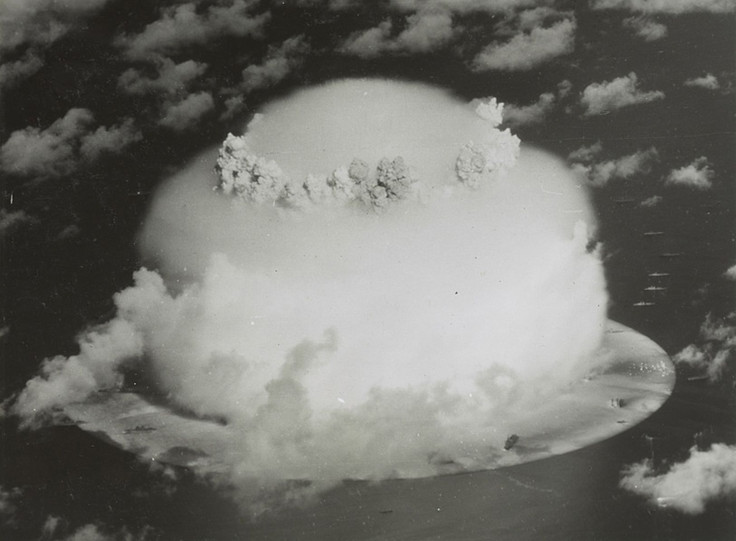Nuclear Arsenal Of Over 100 Weapons In One Country Becomes Self-Defeating: Study

How many nuclear weapons must one country have before they start to become meaningless as a deterrent to any other nation that may be considering attacking it? Not 42, but 100, or so say two U.S. researchers who looked at the potential blowback to any country that actually used nuclear warheads during wartime.
Joshua Pearce from Michigan Technological University and David Denkenberger of Tennessee State University, who is also director of Alliance to Feed the Earth in Disasters (ALLFED), did something of a cost-benefit analysis for nuclear arsenals. And they argue in a paper titled “A National Pragmatic Safety Limit for Nuclear Weapon Quantities” — published Wednesday in the journal Safety — that any more than 100 nuclear weapons owned by any one country did not make much sense.
Their argument is something along the following lines. The countries that currently have nuclear weapons (nine in all — U.S., Russia, the United Kingdom, France and China, all signatories to the Nuclear Non-Proliferation Treaty, India, Pakistan and North Korea, and Israel, which hasn’t confirmed its arsenal, estimated to be about 80 warheads) essentially use them as deterrence, meaning their weapons keep them safe from being attacked by their enemies.
However, over 100 nuclear weapons could cause instability even in the best-case scenario if they were to be actually used. This would be a result of the nuclear autumn that would follow, as well as the cost of maintaining a large arsenal of nuclear weapons.
“With 100 nuclear weapons, you still get nuclear deterrence, but avoid the probable blowback from nuclear autumn that kills your own people. Defense expenditures post-9/11 show we care about protecting Americans. If we use 1,000 nuclear warheads against an enemy and no one retaliates, we will see about 50 times more Americans die than did on 9/11 due to the after-effects of our own weapons,” Pearce said in a statement Wednesday.
Currently, there are an estimated about 15,000 nuclear weapons in the world, according to the International Campaign to Abolish Nuclear Weapons, of which almost 13,000 are in Russia and the U.S., each weapon several times more powerful than the bombs dropped over Japan in World War II. If the paper’s proposals were to be followed, the number would reduce to under 900, and the countries involved would feel pretty much as safe as they are today.
Given the power of the weapons in modern stockpiles, there would be massive immediate impact wherever even one of them was dropped. In the paper, the researchers considered the hypothetical scenario of the U.S. using 100 nuclear weapons against the most populous cities of China. The initial blasts would kill over 30 million people, likely proving to be an effective deterrent for any counterattack from the Chinese.
However, all the burning material in the cities would create smoke and soot which would reduce sunlight and precipitation by as much as between 10 and 20 percent for several years, or nuclear autumn (as opposed to nuclear winter, where the sunlight would be a lot less, causing winter-like conditions even in the summer), leading to agricultural loss of a similar amount, and therefore causing widespread food shortages even in the wealthier nations, including the United States.

“We should be clear this analysis represents a severe underestimate on the number of dead Americans. We assume severe rationing, which is the best way to keep the most people alive when there is this level of food shortage. It means anyone who would die of starvation is immediately cut off from food. I don't think rationing would go overly smoothly — a lot more people would die in violence internally than what we estimated based on lack of calories,” Pearce said.
Denkenberger added: “The U.S. government should greatly increase focus on producing alternative food to provide for survivors in the case of nuclear war; with supply chains cut-off, all food Americans eat will have to come from within the nation’s borders.”
© Copyright IBTimes 2024. All rights reserved.




















